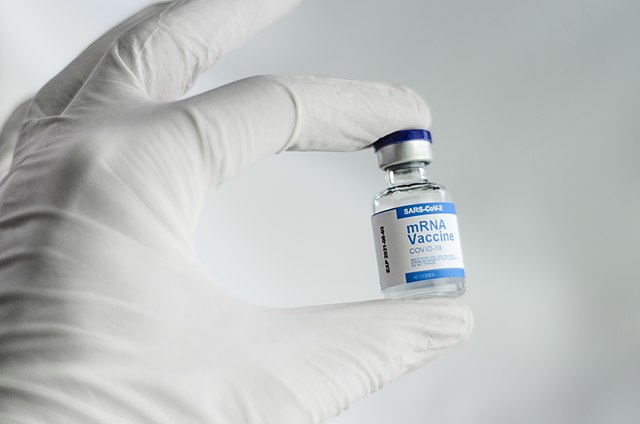COVID-19 vaccine associated with slight increases in menstrual cycle length
Courtesy of Wikimedia Commons
January 20, 2022
A recent study in Obstetrics and Gynecology found that women who had received one dose of a COVID-19 vaccine during a menstrual cycle experienced an increase in menstrual cycle length of approximately one day when compared with a sample of unvaccinated women. The increase in menstrual cycle length, or the number of days between menstrual periods, was not associated with the number of days of menses, or the days of bleeding.
According to the authors, led by Alison Edelman, M.D., M.P.H., of Oregon Health and Science University, Portland, menstrual cycles typically vary from month to month and the observed increase was well within the range of normal variability. The authors added that the International Federation of Gynecology and Obstetrics classifies a variation in menstrual cycle length as normal if the change is less than eight days. The study was funded by the National Institutes of Health and the Eunice Kennedy Shriver National Institute of Child Health and Human Development as part of a $1.67 million award to five institutions exploring potential links between the COVID-19 vaccine and changes in menstrual cycles.
The authors analyzed anonymized menstrual cycle data from the fertility tracking app Natural Cycles, where users input data on their temperature and their menstrual cycles. For vaccinated individuals, they analyzed data from three menstrual cycles prior to vaccination and three menstrual cycles after vaccination. For unvaccinated individuals, data was analyzed from six consecutive menstrual cycles. Most of the vaccinated users had received at least one dose of the Pfizer or Moderna vaccines. The authors were able to conclude that users vaccinated over two menstrual cycles had an increase of less than one day in each of the vaccination cycles.
A promising result of this study is that its conclusions could be used to better counsel women about concerns related to fertility when discussing COVID-19 vaccination. Future areas of research could involve the potential impact of the COVID-19 vaccine on other factors involved in menstruation, such as pain and mood changes, or heaviness of bleeding.







